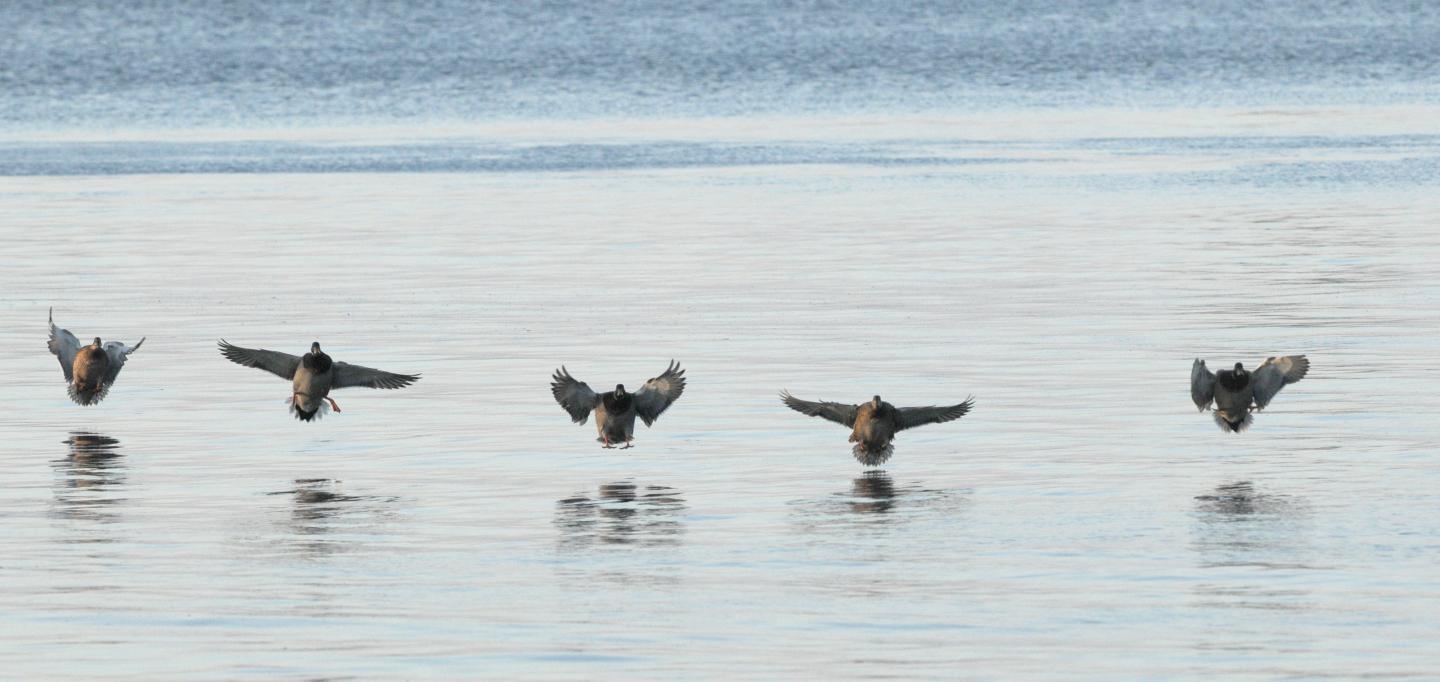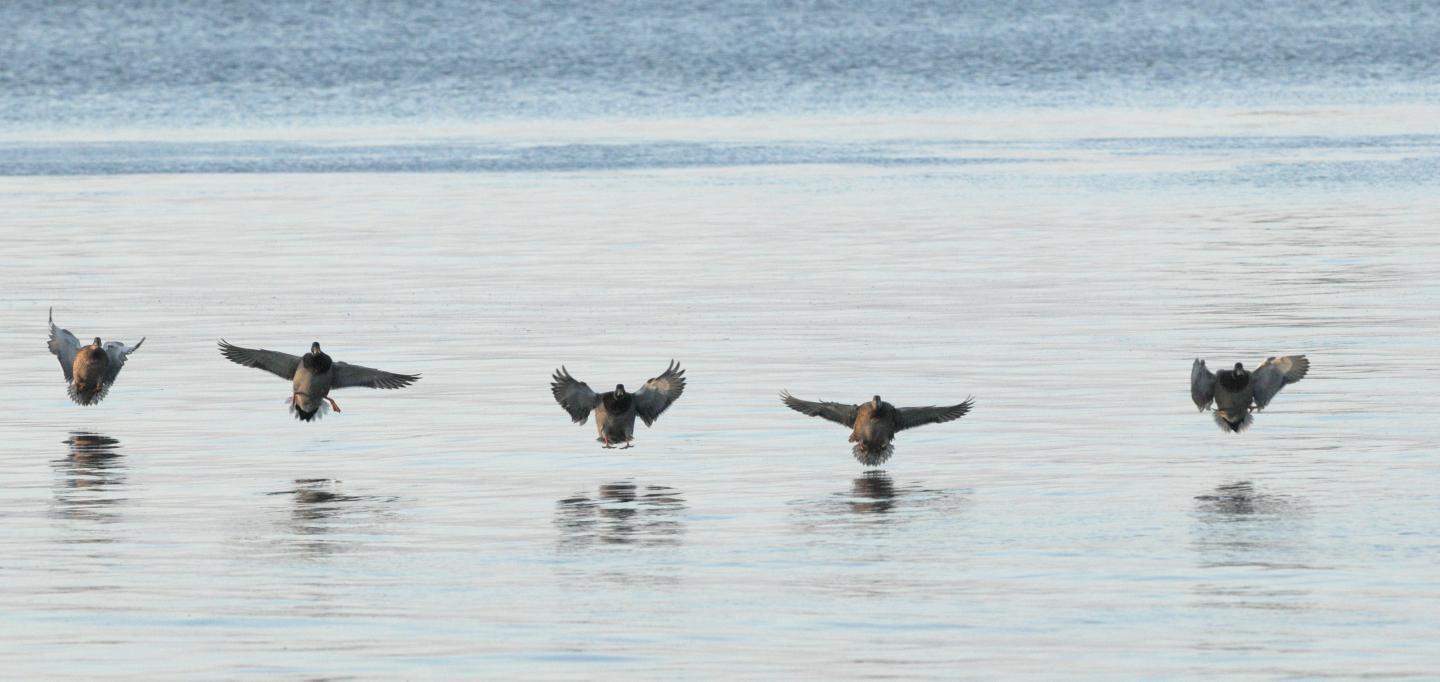
Credit: Aleksi Lehikoinen
A new scientific article shows that 25 European waterbird species can change their wintering areas depending on winter weather. Warm winters allow them to shift their wintering areas northeastwards, whereas cold spells push birds southwestwards. Species wintering in deep waters show the fastest long-term change: their abundances have shifted annually about 5 km northeastwards in the past 24 years.
A recent collaborative study between 21 European countries provides new insights into how waterbirds respond to the changes in winter weather conditions at large scale. The study shows that waterbirds respond to both year-to-year and long-term changes in winter weather conditions, which is evident by the changes in local abundances during winter.
– Our study highlights that not all waterbirds respond equally to changes in weather conditions. Species preferring shallow and deep water are responding fastest to annual variation in temperature, whereas farmland species like geese, show weak responses, says Diego Pavón-Jordán from the Helsinki Lab of Ornithology at Finnish Museum of Natural History and leading author of this study.
In addition to the year-to-year variation, the study also shows that there is a long-term shift of the centre of the wintering population of species preferring deep waters, which has been progressively moving northeastwards during the 1990s and 2000s. The centre of the wintering population of species preferring shallow waters moved northeastwards during the 1990s and early 2000s but southwestwards after mid-2000s, coinciding with several consecutive harsh winters in Europe.
– According to the latest IPCC report released in October 2018 winters will become milder in the near future, which will definitely affect abundances of waterbirds across Europe. There will likely be to local extinctions in some wetlands at the southern edge of the distribution of many species, and colonisations of new wetlands in the northern edge of the distribution, says Aleksi Lehikoinen head of the Helsinki Lab of Ornithology at the Finnish Museum of Natural History.
Increased variability in winter weather conditions reported by the IPCC can also cause large year-to-year fluctuations in abundances, pushing and pulling individuals north and south along the migration flyway. All these changes in distribution areas and abundances of waterbirds create challenges to protect and monitor species. For instance species may not winter any more inside certain protected areas since climatic conditions may have become unfavourable in the region.
###
This study was carried out thanks to the collaboration between research centres and NGOs across Europe and the enormous effort of Wetlands International coordinating the citizen-science-based International Waterbird Census (IWC) worldwide. Findings are published in the scientific journal Diversity and Distributions.
Media Contact
Aleksi Lehikoinen
[email protected]
358-451-375-732
@helsinkiuni
http://www.helsinki.fi/university/
Original Source
https://www.helsinki.fi/en/news/sustainability-news/responses-of-waterbirds-to-climate-change-is-linked-to-their-preferred-wintering-habitats-in-europe http://dx.doi.org/10.1111/ddi.12855





